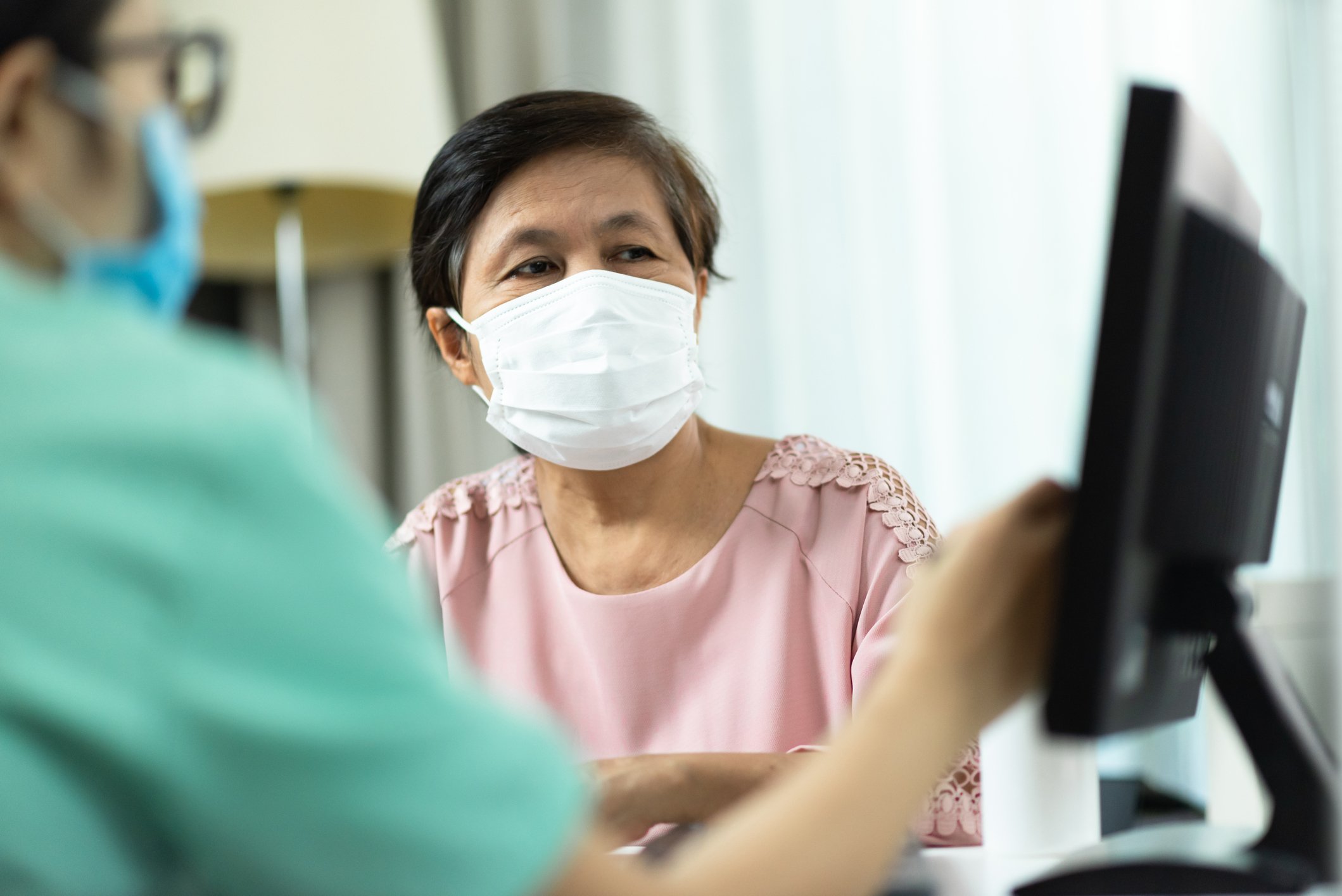COVID-19 continues to spread at an alarming rate, and new variants appear to be more contagious. Our best way to safety is the coronavirus vaccine, and we are currently in a race against time to get as many people as possible vaccinated before the new variants become very widespread.
The Centers for Disease Control and Prevention predicts that more than half a million people in the U.S. will have died from the coronavirus by February. Yet, with vaccine distribution starting to ramp up, many people are fearful about taking it-- passing up the chance to keep themselves safe.
Why do people hold back? It could be needle phobia, which affects up to 10 percent of the population. And others simply aren’t convinced the vaccinations are safe and effective. In fact, according to a recent study from the Kaiser Family Foundation, nearly a quarter of Americans say they remain unsure or hesitant about getting a coronavirus vaccine—and the numbers for minorities are even higher, with only 35 percent of Black adults surveyed reporting they will get the vaccine as soon as it’s available to them.
Speed Did Not Stop a Safe Vaccine
Yes, development for these vaccines was fast, but that is with good reason:
- Bureaucratic review was expedited, so there was significantly less red tape involved.
- Manufacturing happened concurrently with clinical trials because governments took a risk and allowed manufacturers to stockpile the vaccines until they were proven safe and effective in people.
- Genetic sequencing technology is better and faster than ever before.
- The mRNA format of the vaccine, while new to the market, has been in development for years and has been thoroughly tested.
“I don’t know about everybody else, but I’ve been stuck in my house since March,” said Dr. Sydney Ross-Davis, Chief Medical Officer at Zing Health. “If you’ve been limited in your ability to hug your grandchildren, see your friends and travel your usual circuit, taking the vaccine (both doses) allows you the ability to go outside your house and have a relatively normal life again.”
Minorities Less Likely to Choose a COVID-19 Vaccine
COVID has disproportionally affected African Americans and other minority groups for a variety of reasons, from health inequities to housing and employment situations that increase risk of exposure and infection, making it even more vital for people of color to get the vaccine when available.
Yet, vaccine hesitancy is more common among African Americans and Latinx people. Kaiser Family Foundation data shows that people of color are less likely to get flu shots across all states and age groups, and that trend appears to be holding for COVID vaccines as well. The barriers to vaccines for this group are a reflection of historical medical abuse and mistreatment of, as well as current discrimination against, people of color that continues to manifest in earned distrust of the health care system.
A Kaiser survey found that seven in ten Black adults believe that race-based discrimination in healthcare happens very or somewhat often. The survey also reported that Black adults are more likely than white adults to report negative experiences with health care providers.
While these are valid concerns, Dr. Ross-Davis urges everyone to get vaccinated. “Bottom line, these vaccines are safe and effective,” she says. “As a black physician and scientist, I have been watching the development of the vaccines closely and am looking forward to my loved ones and myself getting our shots so we can be together again. If we’re going to return to a world where we can socialize, live, work and travel as we used to, everyone needs to do their part to get immunized and give ourselves the freedom that comes with good health.”
Healthcare Team Answers Call on COVID Questions
For those with allergies or medical conditions worried that the vaccine will make things worse, physicians are aware of who shouldn’t be taking the vaccine, and it’s a very small number of people. Those with a severe allergic reaction to any component of the COVID-19 vaccine--or any vaccine or injectable medication--need to check with their health provider about possible risks.
Everyone else—even those with severe allergic reactions to foods, oral medications, pets, etc.—may get vaccinated.
The goal of vaccinations is to achieve “herd immunity,” which means enough of the population is immune to the virus so that it doesn’t spread easily. Experts predict for COVID-19 to be controlled, about 70 percent of the population would need to be vaccinated, which translates to at least 248 million people in the U.S. We’re still a long way from that goal.
It’s OK to have questions. Anytime you are unsure of something or worried about your health, talk to your primary care provider and get your questions answered.
“Zing Health is reaching out to members to make sure they get all the benefits of quality healthcare,” says CEO Dr. Eric E. Whitaker, who plans to help administer COVID-19 vaccines as a volunteer. “We’re here to assist everyone in navigating the healthcare system.”
We've Made it Easier to Find Yours
Zing Health has partnered with Oak Street Health to offer Covid-19 vaccinations at no cost to all our members. You do not need to have a primary care provider at Oak Street Health to get your vaccine at one of their clinics. Visit oakstreethealth.com/covid-19-vaccine to make an appointment to receive both doses. You may also get your shots at no cost at from your primary care provider, a public health clinic, or any retail location that has doses available.
Y0149_B_02052021_C




